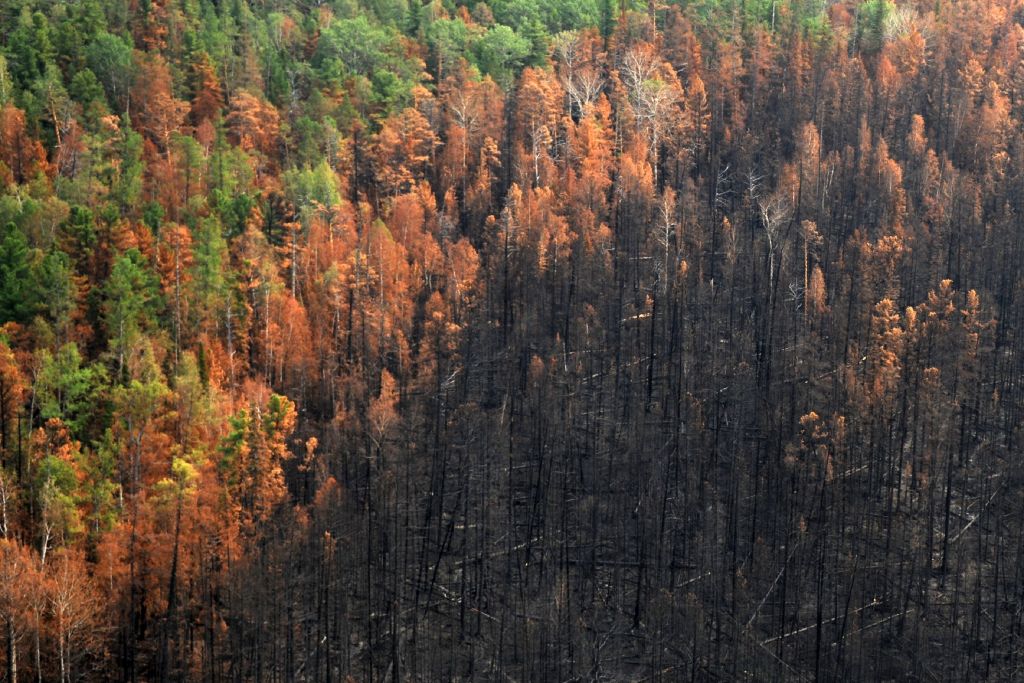2020 ties for warmest year on record, continuing 7-year hot streak


A free daily email with the biggest news stories of the day – and the best features from TheWeek.com
You are now subscribed
Your newsletter sign-up was successful
2020 has tied with 2016 for the hottest year on record — and there's no end to the warming in sight.
A wave of scientific institutions' analyses released in the past week point to a "photo finish" between the two years for the hottest on record, Zeke Hausfather, a climate expert at the Breakthrough Institute, told The Washington Post. And regardless of which year is on top, 2020 and the six years before it make up the top 7 hottest years in more than a century and a half of recorded history, once again showing how human-caused global warming is continuing to warp the planet.
When looking at the top two finishes, 2016 had everything it needed to be a hot year, experiencing an El Niño event that brings warm waters to the Pacific and hotter temperatures as a result. Meanwhile 2020 saw a La Niña, which usually brings cooler weather. But even the chilly phenomenon couldn't dampen the Earth's increasingly hot streak. A tenth of the planet can count 2020 as its hottest year, leading to wildfires above the Arctic Circle and the busiest Atlantic hurricane season on record, reports the Post. Those wildfires have a compounding effect, as they released massive amounts of carbon dioxide that will likely only add to the Earth's warming.
The Week
Escape your echo chamber. Get the facts behind the news, plus analysis from multiple perspectives.

Sign up for The Week's Free Newsletters
From our morning news briefing to a weekly Good News Newsletter, get the best of The Week delivered directly to your inbox.
From our morning news briefing to a weekly Good News Newsletter, get the best of The Week delivered directly to your inbox.
The past year's La Niña didn't emerge until September, meaning its strongest effects will likely be reserved for 2021, Gavin Schmidt, the director of NASA's Goddard Institute, noted to The New York Times. So while 2021 probably won't be a "record-warm year," it'll likely be "another top-five year, and clearly part of the string of very warm years that we've been having," Schmidt said. See just where 2020's record heat had its strongest effects at The New York Times.
A free daily email with the biggest news stories of the day – and the best features from TheWeek.com
Kathryn is a graduate of Syracuse University, with degrees in magazine journalism and information technology, along with hours to earn another degree after working at SU's independent paper The Daily Orange. She's currently recovering from a horse addiction while living in New York City, and likes to share her extremely dry sense of humor on Twitter.
-
 How to Get to Heaven from Belfast: a ‘highly entertaining ride’
How to Get to Heaven from Belfast: a ‘highly entertaining ride’The Week Recommends Mystery-comedy from the creator of Derry Girls should be ‘your new binge-watch’
-
 The 8 best TV shows of the 1960s
The 8 best TV shows of the 1960sThe standout shows of this decade take viewers from outer space to the Wild West
-
 Microdramas are booming
Microdramas are boomingUnder the radar Scroll to watch a whole movie
-
 Nobody seems surprised Wagner's Prigozhin died under suspicious circumstances
Nobody seems surprised Wagner's Prigozhin died under suspicious circumstancesSpeed Read
-
 Western mountain climbers allegedly left Pakistani porter to die on K2
Western mountain climbers allegedly left Pakistani porter to die on K2Speed Read
-
 'Circular saw blades' divide controversial Rio Grande buoys installed by Texas governor
'Circular saw blades' divide controversial Rio Grande buoys installed by Texas governorSpeed Read
-
 Los Angeles city workers stage 1-day walkout over labor conditions
Los Angeles city workers stage 1-day walkout over labor conditionsSpeed Read
-
 Mega Millions jackpot climbs to an estimated $1.55 billion
Mega Millions jackpot climbs to an estimated $1.55 billionSpeed Read
-
 Bangladesh dealing with worst dengue fever outbreak on record
Bangladesh dealing with worst dengue fever outbreak on recordSpeed Read
-
 Glacial outburst flooding in Juneau destroys homes
Glacial outburst flooding in Juneau destroys homesSpeed Read
-
 Scotland seeking 'monster hunters' to search for fabled Loch Ness creature
Scotland seeking 'monster hunters' to search for fabled Loch Ness creatureSpeed Read
